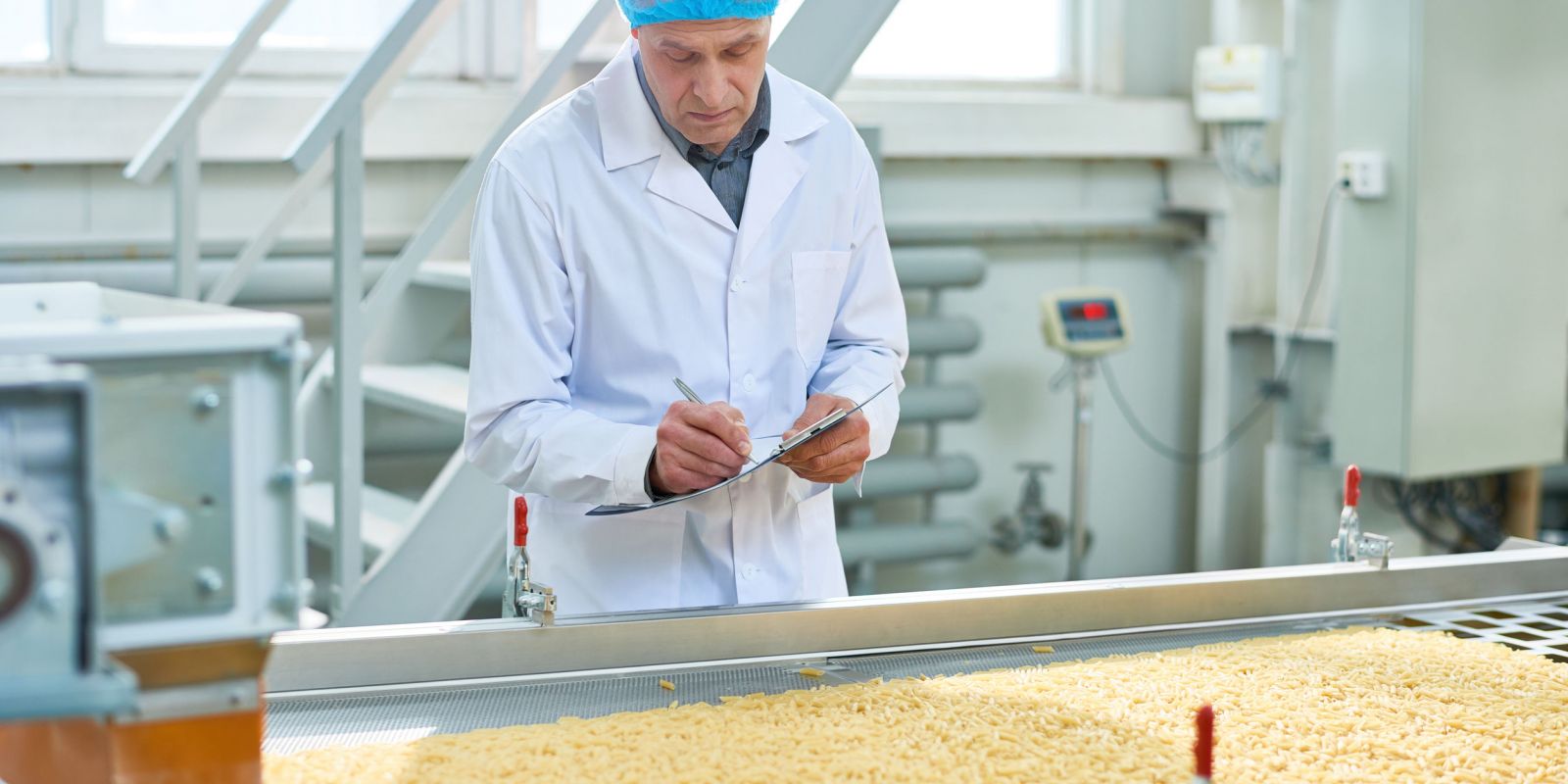Agriculture and the food chain is arguably the largest part of the Greater Lincolnshire economy, supporting 120,000 jobs, and is the biggest sector in the area.
Only 39% of local food sector jobs are in food retail and catering, compared to 73% in the UK. In contrast 61% are in food processing, marketing, logistics, engineering and agriculture, making Greater Lincolnshire an area firmly focused on food production for national markets.
The food chain has continued to grow during the Covid-19 pandemic: most food processors and marketing companies have seen sales rise as food retail experienced growth of 10%, with online food sales rising by a huge 50% or more. Growth in this area is creating new jobs and the industry is beginning to attract new UK workers, building on our local advantage with (pre-Covid) growth showing that 43% of new local jobs were created in the food sector.
Jobs roles in the industry are changing rapidly as new pressures such as low-carbon technology and automation combine to create an increased demand for scientific, technical and managerial skills. The Greater Lincolnshire food sector is also increasingly global, providing much additional opportunity for travel and demand for skills in disciplines such as marketing, trade and languages.
Growth of Lincolnshire’s food clusters, such as 10,000 jobs in Humber fish processing and 25,000 jobs in South Lincolnshire fresh produce, is supported by growth in demand for healthier food which is expected to continue as the link between diet and health becomes a major factor in the food market.
Back in 2015 Greater Lincolnshire recognised that automation and technology would transform the food chain, and the University of Lincoln and Bishop Burton College have been preparing for this change since then. Five years on, over 90 project successes and major new facilities have been developed, and Greater Lincolnshire has invested over £90m to develop new technologies and enhanced skills provision for the food chain.
The Lincoln Institute for AgriFood Technology (LIAT) and Lincoln Agri-Robotics (LAR) is now Europe’s largest agri-robotics team with funding for 65 PhDs, a staff team of over 30, and a further 40 staff in co-located businesses. It is also the site of Barclays’ first Eagle Lab Farm which helps start-ups in the agritech sector and hosts the UK’s first robotic fruit farm and a research supermarket store.
The National Centre for Food Manufacturing (NCFM) in Holbeach is the UK’s largest provider of training to the UK processing industry. It has secured £7m to create a Centre of Excellence on the South Lincolnshire Food Enterprise Zone (FEZ) alongside an £8m hub building for collaborative industry projects. In 2021 the NCFM and the LIAT will launch the UK’s first higher apprenticeship to develop BASIS-qualified advisors to support farmers with crop protection and nutrition advice.
The NCFM also leads the Lincolnshire Institute of Technology (IoT), one of 12 created nationally in 2019, alongside 7 FE/HE partners. A £15m investment, our IoT specialises in agri-tech, food manufacturing, energy, digital and engineering and will spearhead the development of food chain higher technical education at levels 4 and 5 across Greater Lincolnshire.
Bishop Burton College’s £26m Riseholme Showground campus, part-funded by the LEP, opened in 2016, provides industry-standard agri-food facilities and in 2019/20 supported the training needs of 504 full-time FE students and 72 HE students. A further £3.6m has recently been invested as part of the Lincolnshire IoT and in residential accommodation.
The campus’ curriculum has been developed with major employers such as Cranswick PLC and Tulip and it has established the British Egg Academy with Morrisons.
Despite these striking developments, skills supply remains a key industry challenge and more work is needed to attract new entrants and upskill the workforce as the sector grows and job roles evolve. By 2030 the sector is expected to provide more quality, high-paid, technical jobs, and by working with proactive industry members Lincolnshire’s education providers can continue to support future skills needs and promote the industry and ambitions to become a global leader in this field, offering multiple opportunities to investors, businesses and career seekers.


